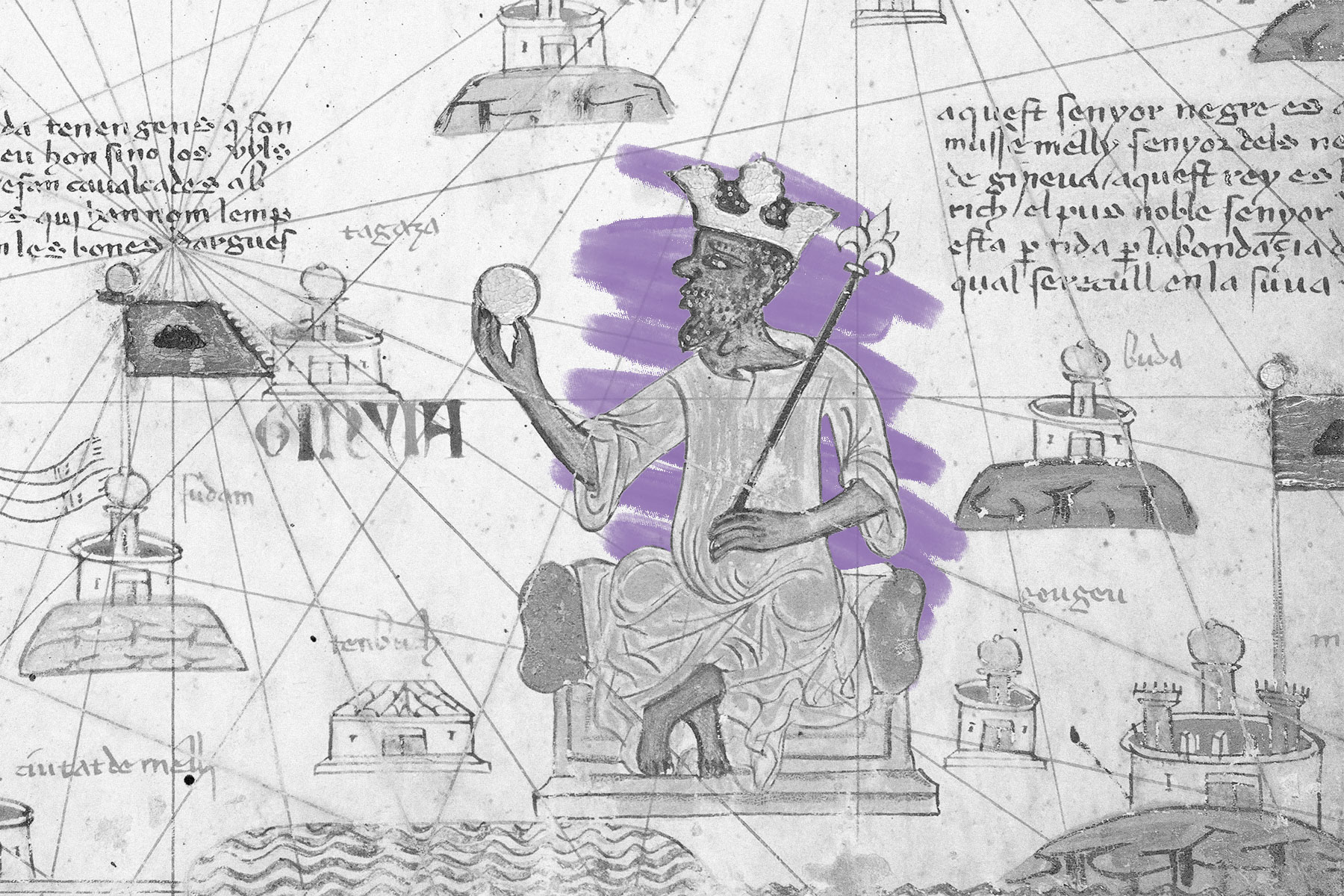The richest person in history
Friday, March 29, 2024
Move over, modern-day billionaires — the wealthiest person of all time lived seven centuries ago. |
| |
| |
|
 |
|
| M ove over, modern-day billionaires — the wealthiest person of all time lived seven centuries ago. Musa I of Mali was a 14th-century king (called a "mansa") who came into power in 1312 CE. He greatly expanded the Mali Empire, culminating in a large swath of West Africa, from the Atlantic Ocean to Timbuktu and beyond. The empire had significant reserves of salt and gold (nearly half of the world's supply of gold at the time), and it became incredibly wealthy. Mansa Musa also controlled some of the biggest trade centers in Africa, establishing Timbuktu as a major hub. Some sources speculate that Musa's wealth was equivalent to roughly $400 billion today — by comparison, the wealthiest modern billionaires have net worths of around $200 billion. Though an exact figure is impossible to calculate, many historians believe Musa to be the wealthiest person in history. |
|
|
| In 1324, the Muslim ruler decided to make a pilgrimage to Mecca. He traversed the Sahara Desert with tens of thousands of followers dressed in Persian silk (including soldiers, enslaved people, merchants, and the entire royal court). Adding to the spectacle, 100 camels carrying hundreds of pounds of gold were also in tow. The caravan reportedly spent three months in Cairo, Egypt, where Musa handed out gold as if it were candy. In fact, Musa's trek through the Middle East caused the price of gold to plummet in Egypt due to the sheer amount of treasure he brought into the region. Although Musa died sometime in the 1330s, his legacy continued. He made Mali a well-known empire, and it was added to the Catalan Atlas (one of the most popular medieval maps) for the first time in 1375. On the map, a golden-crowned Musa is depicted holding a scepter and a gold nugget. |
|
 |  |
|
| Thank you for supporting our advertisers! |
|
| |
|
 |
|
By the Numbers |
|
| Distance (in miles) of Musa's pilgrimage to Mecca | | | 4,000 |
| | | Approximate cost of 1 pound of gold today | | | $29,560 |
| | | Approximate cost of 1 pound of gold today | | | $29,560 |
|
|
|
| Maximum weight (in pounds) that an Arabian camel can carry | | | 220 |
| | | People in Musa's caravan to Mecca | | | ~60,000 |
| | | People in Musa's caravan to Mecca | | | ~60,000 |
|
|
|
 |
|
 | | Did you know? |
|
|
Pineapples were once so expensive, they were rented as a status symbol. |
|
| Imagine walking the streets of Georgian-era London and seeing an aristocrat on a stroll with a pineapple tucked under their arm, proudly showing off the golden fruit. Pineapples, sometimes known as "king's fruit," were one of British society's most sought-after status symbols for 250 years. They were often displayed at dinner parties on special plates but typically weren't eaten. Hosts saved thousands of dollars by renting pineapples instead of buying them — one pineapple cost a whopping £60 (around $17,000 today) in the mid-17th century. The fruit earned its luxurious reputation during the 16th century, when it was first imported from the Caribbean, and by the 18th century, growing pineapples became a pastime of the upper class. The end of the fruit's reign was marked by the emergence of steamships in the late 18th century, which transported pineapples from the American colonies. Soon, the tropical fruit was so readily available that the working class could afford it, and the wealthy moved on to newer, less spiky status symbols. |
|
| Thank you for supporting our advertisers! |
|
| |


posted by June Lesley at 4:02 AM










![]()
![]()






0 Comments:
Post a Comment
<< Home